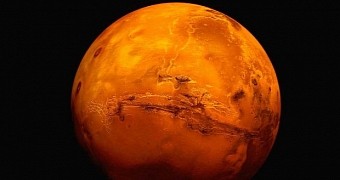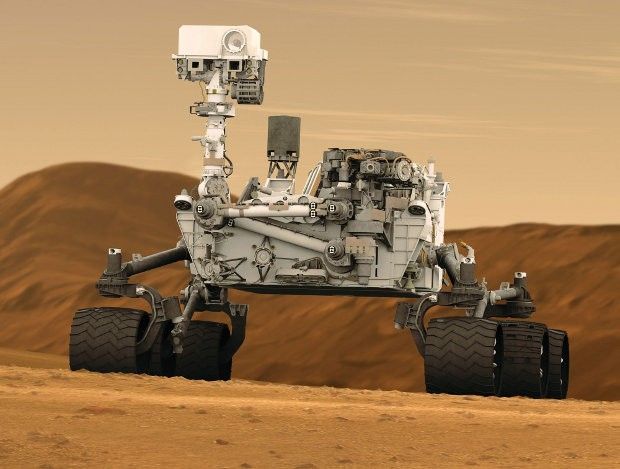Scientists have long been aware of the fact that Mars has water included in its makeup, albeit in a frozen form. In fact, it was last week that researchers announced the discovery of ice belts surrounding the central latitudes of the Red Planet's northern and southern hemisphere.
Interestingly, a team of specialist with the University of Copenhagen's Niels Bohr Institute in Denmark believe to have found evidence that Mars might also hold liquid water just under its surface.
Discovering liquid water on the Red Planet
In a report published in a recent issue of the science journal Nature, the Niels Bohr Institute researchers detail that their claim that the Red Planet could hold liquid water under its surface is based on data provided by NASA's Curiosity rover.
The rover landed in Mars' Gale Crater in August 2012 and has been exploring it ever since. Among other things, Curiosity has found evidence that the local soil contains a substance dubbed calcium perchlorate.
Apparently, the mere presence of this substance in the soil covering the Red Planet's Gale Crater is an indicator that liquid water could be lurking in the area, the Niels Bohr Institute team explains.
The scientists add that calcium perchlorate can absorb water vapors from Mars' atmosphere, mix with them and form a brine of sorts that can then seep into the underground, dissolving other substances as it goes.
“Calcium perchlorate is very absorbent and it forms a brine with the water, so the freezing point is lowered and the frost can turn into a liquid. The soil is porous, so what we are seeing is that the water seeps down through the soil,” explains specialist Morten Bo Madsen.
Liquid water does not proof of alien life make
True, researchers are adamant that finding liquid water on a celestial body is a prerequisite of finding alien life. Still, this probably isn't true about the Red Planet, no matter how much we might fancy the idea of meeting Martians in the near future.
As explained by the Niels Bohr Institute scientists behind this investigation, Mars is simply too dry, too cold and too exposed to cosmic radiation for lifeforms similar to the ones that populate our planet to exist on its surface, at least in this day and age.
If alien lifeforms ever inhabited Mars, chances are this happened about 4.5 billion years back, when the planet had a thicker atmosphere and packed way more water than it currently does.

 14 DAY TRIAL //
14 DAY TRIAL // 

